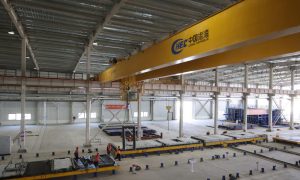Qatar needs to do more to address World Cup worker conditions
There is an inevitable pattern leading up to a major sporting event. The world’s media scrutinise the host’s readiness, and pounce on any event as if it is proof that the event’s very existence is in jeopardy. South Africa, London, Sochi and Brazil – all experienced versions of this, only for the focus to suddenly shift once the actual sporting event began and the media had something else to report on.
Qatar’s experience with the scrutiny arising from being awarded the 2022 World Cup has been rocky. Apart from any issue of corruption claims as part of the wider FIFA imbroglio, construction worker conditions remain under the microscope. International journalists have visited construction sites to interview labourers and have been to their living compounds (last month BBC reporters were arrested on trespassing charges and briefly detained), while international organisations have compiled detailed reports.
But while Qatar has made various changes, such as construction of new labour accommodation, it hasn’t addressed the underlying issues of labour regulations. To its critics, the system presents opportunities for abuse of workers’ rights, including withholding of passports and under-payment.
Last month, Amnesty International released a report with the self-explanatory title ‘Promising little, delivering less: Qatar and migrant labour abuse ahead of the 2022 Football World Cup’. The earthquake in Nepal has also brought the restrictions on some workers’ freedom of movement into stark focus.
While it is certainly true that Qatar has taken steps to improve worker conditions, and that construction companies have been more proactive in ensuring workers have safer working conditions and better living standards, more needs to be done. While FIFA has been toothless in its demands of Qatar, this should not lull those tasked with charting the course for the Cup’s preparation into a false sense of security. After all, it is the corporate sponsors who bankroll the World Cup and help determine its success. Sponsors like Coke, VISA, Adidas and Hyundai will be careful to check which way the wind of public opinion is blowing.
There is also the bigger picture of what Qatar wants to achieve beyond the Cup. The country has a vision of creating a flourishing tourism industry, which will boost the revenues of companies such as Qatar Airways as well as provide returns for the large private investments in the hotel and leisure sector. Qatar has a lot to offer to the tourism sector – it has many charms, and a feeling of Gulf authenticity that tourist hotspot Dubai largely doesn’t – but most journalists headed to Doha these days aren’t going to produce travel pieces showing the old Souk or its flourishing contemporary art scene. Every negative news report is a lost chance for Qatar to brand itself as a refreshing destination for international tourism.
Qatar should take steps to ensure that the country benefits from the increased spotlight that comes with the World Cup, and to move on from the current situation, rather than spend the next seven years with the negative PR hanging like a millstone around its neck.

























